CORPORATE ACTION: Colgate
Many Recycling Centers Refuse To Take In Colgate-Palmolive’s HDPE Toothpaste Tubes
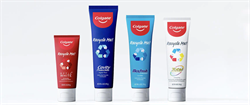 Colgate-Palmolive said it is finding it difficult to convince recycling stakeholders that its high-density polyethylene toothpaste tubes are recyclable. The company is using HDPE for 78 percent of its toothpaste range; however, How2Recycle has yet to classify the tubes as recyclable and many sorting centers in the U.S. and other countries not accept them.[Image Credit: © Colgate-Palmolive Company]
Colgate-Palmolive said it is finding it difficult to convince recycling stakeholders that its high-density polyethylene toothpaste tubes are recyclable. The company is using HDPE for 78 percent of its toothpaste range; however, How2Recycle has yet to classify the tubes as recyclable and many sorting centers in the U.S. and other countries not accept them.[Image Credit: © Colgate-Palmolive Company]
CORPORATE ACTION: Henkel
Korozo Flexibles Develops 100% Recyclable Pouch For Henkel’s High-End Dishwashing Detergent
 Korozo Flexibles has collaborated with Henkel to produce a 100 percent recyclable stand-up pouch for the Somat Excellence line of premium automatic dishwashing products. Korozo used its mono-material film to come up with the pouch for Henkel’s high-end dishwashing detergent. Aside from being fully recyclable, Korozo’s mono-material film can be processed on form-fill-seal lines and features excellent heat resistance and stiffness.[Image Credit: © Henkel AG & Co. KGaA]
Korozo Flexibles has collaborated with Henkel to produce a 100 percent recyclable stand-up pouch for the Somat Excellence line of premium automatic dishwashing products. Korozo used its mono-material film to come up with the pouch for Henkel’s high-end dishwashing detergent. Aside from being fully recyclable, Korozo’s mono-material film can be processed on form-fill-seal lines and features excellent heat resistance and stiffness.[Image Credit: © Henkel AG & Co. KGaA]
CORPORATE ACTION: L’Oréal
Garnier Joins Forces With Plastics For Change To Build Plastic Waste Collection Center In Chennai, India
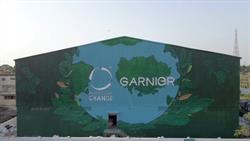 Garnier has partnered with Plastics for Change to open a plastic waste collection center in Chennai, India. The facility is designed to collect about 2,000 tonnes of plastic waste and provide livelihood opportunities to some 2,000 members of local communities. Packaging materials collected at the center will be used to manufacture 100 percent recycled plastic bottles for the beauty brand’s Ultra Doux range of products. Also, plastic collection kiosks will be established in 20 locations in Mumbai, Chennai, and Delhi.[Image Credit: © Plastics for Change]
Garnier has partnered with Plastics for Change to open a plastic waste collection center in Chennai, India. The facility is designed to collect about 2,000 tonnes of plastic waste and provide livelihood opportunities to some 2,000 members of local communities. Packaging materials collected at the center will be used to manufacture 100 percent recycled plastic bottles for the beauty brand’s Ultra Doux range of products. Also, plastic collection kiosks will be established in 20 locations in Mumbai, Chennai, and Delhi.[Image Credit: © Plastics for Change]
CORPORATE ACTION: PepsiCo
PepsiCo Aims To Double Use Rate Of Reusable Packaging To 20% By 2030
.jpg&width=250&height=103) PepsiCo announced its goal to double the percentage of beverages it sells with reusable packaging from 10 percent to 20 percent by 2030. The company said this step is part of its PepsiCo Positive initiative that seeks to put “sustainability and people at the center” of its growth- and value-creating steps. PepsiCo started its Sustainable Packaging Vision with its $3.2 billion acquisition of SodaStream in 2018. PepsiCo aims to reduce its use of virgin plastic by 50 percent per serving by 2030 and achieve Net Zero status by 2040.[Image Credit: © Pepsico and PRNewswire]
PepsiCo announced its goal to double the percentage of beverages it sells with reusable packaging from 10 percent to 20 percent by 2030. The company said this step is part of its PepsiCo Positive initiative that seeks to put “sustainability and people at the center” of its growth- and value-creating steps. PepsiCo started its Sustainable Packaging Vision with its $3.2 billion acquisition of SodaStream in 2018. PepsiCo aims to reduce its use of virgin plastic by 50 percent per serving by 2030 and achieve Net Zero status by 2040.[Image Credit: © Pepsico and PRNewswire]
CORPORATE ACTION: Procter & Gamble
Procter & Gamble Reveals Gains Made Toward 2030 Plastic Recycling Goals
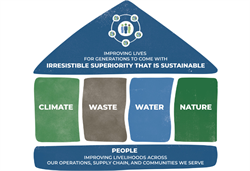 Procter & Gamble aims to design 100 percent of its packaging to be recyclable or reusable by 2030. As of June 30, 2022, the company has achieved 79 percent of consumer packaging as designed to be recyclable or reusable, while reducing by 8 percent its use of virgin petroleum plastic compared with its 2017 baseline. The company aims for a 50 percent reduction in use of virgin plastic by 2030. Meanwhile, P&G has achieved and maintained since 2020 zero manufacturing waste to landfill.[Image Credit: © Procter & Gamble]
Procter & Gamble aims to design 100 percent of its packaging to be recyclable or reusable by 2030. As of June 30, 2022, the company has achieved 79 percent of consumer packaging as designed to be recyclable or reusable, while reducing by 8 percent its use of virgin petroleum plastic compared with its 2017 baseline. The company aims for a 50 percent reduction in use of virgin plastic by 2030. Meanwhile, P&G has achieved and maintained since 2020 zero manufacturing waste to landfill.[Image Credit: © Procter & Gamble]
CORPORATE ACTION: Unilever
Unilever Vietnam Joins 2022 APAC Conference As Country’s Only Corporate Representative
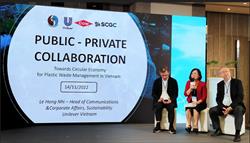 Unilever Vietnam took part in the 16th Asia Pacific Roundtable on Sustainable Consumption and Production held in Bangkok, Thailand, in November 2022. The company was the sole Vietnamese business representative at the event organized by APRSCP and Thai SCP Association in partnership with the United Nations Environment Program and several environmental groups, including WWF-Thailand and PPP Plastic. The event highlighted best practices, programs, local initiatives, and lessons learned on SCP, the circular economy, and net zero emission projects in the Asia-Pacific region.[Image Credit: © Unilever Vietnam]
Unilever Vietnam took part in the 16th Asia Pacific Roundtable on Sustainable Consumption and Production held in Bangkok, Thailand, in November 2022. The company was the sole Vietnamese business representative at the event organized by APRSCP and Thai SCP Association in partnership with the United Nations Environment Program and several environmental groups, including WWF-Thailand and PPP Plastic. The event highlighted best practices, programs, local initiatives, and lessons learned on SCP, the circular economy, and net zero emission projects in the Asia-Pacific region.[Image Credit: © Unilever Vietnam]
Unilever Joins Cosmetics Europe As Founding Member
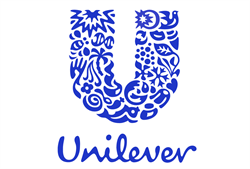 Unilever has joined Cosmetics Europe as a founding member. The organization of cosmetics and personal care companies seeks to promote sustainability and ethical and responsible practices within the industry. The group’s main focus will be on climate, packaging and nature. Unilever said its sustainability commitment is integrated in its corporate purpose, vision, business model and strategy. The company has pledged to reduce by half its use of virgin plastic by 2025, as well as use 25 percent recycled plastic in packaging, and collect and process more plastic than it sells.[Image Credit: © Unilever]
Unilever has joined Cosmetics Europe as a founding member. The organization of cosmetics and personal care companies seeks to promote sustainability and ethical and responsible practices within the industry. The group’s main focus will be on climate, packaging and nature. Unilever said its sustainability commitment is integrated in its corporate purpose, vision, business model and strategy. The company has pledged to reduce by half its use of virgin plastic by 2025, as well as use 25 percent recycled plastic in packaging, and collect and process more plastic than it sells.[Image Credit: © Unilever]
CORPORATE ACTION: Walmart
Asda Introduces Upgrades To In-Store Product Refill System
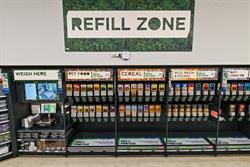 Asda has unveiled plans to improve its in-store refill system based on the results of a consumer survey conducted in partnership with WRAP and Unilever, with funding from Innovate UK. The retailer will implement the following: four dry refill bays for cereals, including Kellogg’s Cornflakes, Bran Flakes, and Coco Pops, as well as own-brand Extra Special Cherry & Berry Muesli; a rice and pasta bay for brands including Napolina and Asda-branded products; and a pet bay, which includes Dreamies Cat Treats, Chappie, Pedigree, and Harrington’s dog food.[Image Credit: © ASDA]
Asda has unveiled plans to improve its in-store refill system based on the results of a consumer survey conducted in partnership with WRAP and Unilever, with funding from Innovate UK. The retailer will implement the following: four dry refill bays for cereals, including Kellogg’s Cornflakes, Bran Flakes, and Coco Pops, as well as own-brand Extra Special Cherry & Berry Muesli; a rice and pasta bay for brands including Napolina and Asda-branded products; and a pet bay, which includes Dreamies Cat Treats, Chappie, Pedigree, and Harrington’s dog food.[Image Credit: © ASDA]
CORPORATE ACTION: Other
Unette Launches Resealable Sachet Packaging
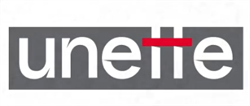 Unette Group has launched its Tear n Tuck resealable sachet, made with 70 percent less plastic than the screw cap tube. The packaging innovation offers a lighter and cheaper option, “convenience on-the-go” and, with its closure mechanism, allows more than one use. It is designed for use in packaging of products, including topical creams, lubricants and suncream.[Image Credit: © Unette]
Unette Group has launched its Tear n Tuck resealable sachet, made with 70 percent less plastic than the screw cap tube. The packaging innovation offers a lighter and cheaper option, “convenience on-the-go” and, with its closure mechanism, allows more than one use. It is designed for use in packaging of products, including topical creams, lubricants and suncream.[Image Credit: © Unette]
Ecover Launches Brand Campaign Featuring Latest Mr. Men Little Miss Character
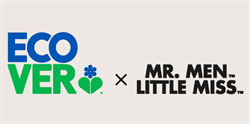 Ecover has introduced Little Miss Waste Less, a Mr. Men Little Miss character aimed to inspire people to reduce their impact on the planet by reducing the waste they produce. The character, which represents Earth with her blue body and green ponytail, comes as an answer to parents’ search for ways to encourage children to protect the environment. Mr Men Little Miss characters have been employed as main characters in various brand campaigns.[Image Credit: © PEOPLE AGAINST DIRTY HOLDINGS LIMITED and THOIP]
Ecover has introduced Little Miss Waste Less, a Mr. Men Little Miss character aimed to inspire people to reduce their impact on the planet by reducing the waste they produce. The character, which represents Earth with her blue body and green ponytail, comes as an answer to parents’ search for ways to encourage children to protect the environment. Mr Men Little Miss characters have been employed as main characters in various brand campaigns.[Image Credit: © PEOPLE AGAINST DIRTY HOLDINGS LIMITED and THOIP]
CAMPAIGNS, COMMITMENTS & NGOs
WWF Report Shows Plastic Recycling Gains By Resource: Plastic Program Members
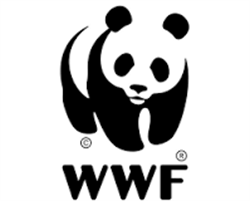
Member companies of World Wildlife Fund’s ReSource: Plastic program removed 3,100 metric tons of problematic plastics from their supply chains in 2020 to 2021. Data from the organization’s report, “Transparent 2022,” revealed the companies have increased their use of recycled content by 35 percent. Also, members have “taken critical actions” in support of broad adoption of reuse systems. However, members increased their total plastic production by 5.3 percent in 2021, marking a recovery following pandemic-related declines.[Image Credit: © World Wildlife Fund]
UK Plastics 2021-2022 Report Highlights Gains In Recycling And Reuse Of Plastic
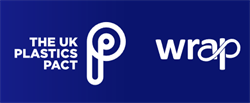 Member companies of The UK Plastics Pact have collectively removed 620 million plastic items from supermarket shelves since 2018. Data from The UK Plastics Pact Annual Report 2021-2022 revealed that 92 percent of rigid plastic packaging is now recyclable, while components that make plastic hard to recycle have been reduced by 90 percent. The group also said that almost half of its members are testing reuse and refill systems, while recycled content has increased more than double to 22 percent. These achievements have helped reduce carbon emissions by 9 percent compared with 2018 levels.[Image Credit: © WRAP.ORG.UK/UKPLASTICSPACT]
Member companies of The UK Plastics Pact have collectively removed 620 million plastic items from supermarket shelves since 2018. Data from The UK Plastics Pact Annual Report 2021-2022 revealed that 92 percent of rigid plastic packaging is now recyclable, while components that make plastic hard to recycle have been reduced by 90 percent. The group also said that almost half of its members are testing reuse and refill systems, while recycled content has increased more than double to 22 percent. These achievements have helped reduce carbon emissions by 9 percent compared with 2018 levels.[Image Credit: © WRAP.ORG.UK/UKPLASTICSPACT]
ALLIANCES, PARTNERSHIPS & JVs
Virtual Summit Highlights Factors Likely To Affect Future Of Sustainability
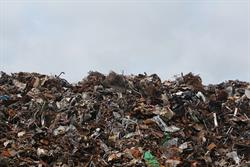 Dow Packaging and Specialty Plastics and Fast Company hosted the Sustainability Next Summit, a virtual conference featuring policy experts, industry leaders, and innovation promoters in November 2022. The virtual summit highlighted the following lessons in sustainability: partnerships among stakeholders power and speed up progress; in the future, the concept and definition of waste will change; and developing a “sustainable ecosystem for plastics” demands support and participation from various stakeholders. Also, future sustainability needs both traditional and more advanced recycling technologies, and demand for sustainable products offers a “significant opportunity” in packaging and consumer goods.[Image Credit: © Pexels from Pixabay]
Dow Packaging and Specialty Plastics and Fast Company hosted the Sustainability Next Summit, a virtual conference featuring policy experts, industry leaders, and innovation promoters in November 2022. The virtual summit highlighted the following lessons in sustainability: partnerships among stakeholders power and speed up progress; in the future, the concept and definition of waste will change; and developing a “sustainable ecosystem for plastics” demands support and participation from various stakeholders. Also, future sustainability needs both traditional and more advanced recycling technologies, and demand for sustainable products offers a “significant opportunity” in packaging and consumer goods.[Image Credit: © Pexels from Pixabay]
CONSUMER & PUBLIC OPINION
Survey Reveals Consumers In Poland And Spain Need Easy-To-Understand Packaging Symbols
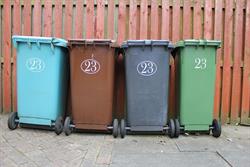 Lack of knowledge about food packaging symbols is making it hard for consumers in Poland and Spain to properly dispose of packaging waste. Results of consumer surveys conducted in the country also revealed consumer confusion regarding how to recycle mixed material packaging and the difficulties related to separating materials. The survey, funded by the European Institute of Innovation and Technology, also highlighted consumers’ concerns about “excessive packaging of fresh produce”.[Image Credit: © Davie Bicker from Pixabay]
Lack of knowledge about food packaging symbols is making it hard for consumers in Poland and Spain to properly dispose of packaging waste. Results of consumer surveys conducted in the country also revealed consumer confusion regarding how to recycle mixed material packaging and the difficulties related to separating materials. The survey, funded by the European Institute of Innovation and Technology, also highlighted consumers’ concerns about “excessive packaging of fresh produce”.[Image Credit: © Davie Bicker from Pixabay]
POLICY, REGULATION & LEGAL
France Bans Fast-Food Restaurants From Using Disposable Utensils And Packaging
.jpg&width=250&height=188)
In France, a provision of a 2020 law that prohibits fast-food restaurants from using disposable packaging and utensils takes effect on January 1, 2023. There are about 30,000 fast-food eateries in the country and together they generate approximately 180,000 tons of waste each year. The European Paper Packaging Alliance has criticized the law, claiming that most single-use containers are made from renewable resources and are 82% recyclable across the European Union.[Image Credit: © Dennis from Pixabay]
FTC Calls For Public’s Input On Proposed Changes To Policies Regarding Environmental Marketing Claims
 The US Federal Trade Commission is calling for public comment on potential updates and changes to the Green Guides for the Use of Environmental Claims, a set of guidelines designed to prevent deceptive environmental marketing claims. In particular, the FTC is seeking public comments on carbon offsets and climate change; the definition of the terms “recyclable” and “recycled content”; and the need for additional guidance regarding terms, such as “compostable” and “degradable”.[Image Credit: © Federal Trade Commission]
The US Federal Trade Commission is calling for public comment on potential updates and changes to the Green Guides for the Use of Environmental Claims, a set of guidelines designed to prevent deceptive environmental marketing claims. In particular, the FTC is seeking public comments on carbon offsets and climate change; the definition of the terms “recyclable” and “recycled content”; and the need for additional guidance regarding terms, such as “compostable” and “degradable”.[Image Credit: © Federal Trade Commission]
European Commission Proposes New Plastic Packaging Rules
 The European Commission has proposed new rules on packaging aimed at dealing with the problem of plastic pollution in the European Union. Also, the proposed rules will promote the adoption of reusable packaging options, remove unnecessary packaging, reduce overpackaging, and include clear labels supporting correct recycling. The new rules also offer new business opportunities for smaller companies, reduce the need for virgin materials, and expand Europe’s recycling capacity.[Image Credit: © The European Commission]
The European Commission has proposed new rules on packaging aimed at dealing with the problem of plastic pollution in the European Union. Also, the proposed rules will promote the adoption of reusable packaging options, remove unnecessary packaging, reduce overpackaging, and include clear labels supporting correct recycling. The new rules also offer new business opportunities for smaller companies, reduce the need for virgin materials, and expand Europe’s recycling capacity.[Image Credit: © The European Commission]
INNOVATION & TECHNOLOGY
Ocean Legacy Unveils North America’s First Commercially Produced Plastic Pellet
 Ocean Legacy has introduced the Legacy Plastic, the first commercially available plastic pellet in North America. The Canada-based organization said the product is made from “high-grade” 100 percent post-consumer processed recycled plastic recovered from the ocean and shorelines. Companies can use Legacy Plastic in their products to “close the loop on plastic management systems”, the non-profit group said.[Image Credit: © OCEAN LEGACY FOUNDATION]
Ocean Legacy has introduced the Legacy Plastic, the first commercially available plastic pellet in North America. The Canada-based organization said the product is made from “high-grade” 100 percent post-consumer processed recycled plastic recovered from the ocean and shorelines. Companies can use Legacy Plastic in their products to “close the loop on plastic management systems”, the non-profit group said.[Image Credit: © OCEAN LEGACY FOUNDATION]
RESEARCH
Lack Of Recycled Feedstock Limits Efforts Of Companies To Reach Circularity Targets
 Supply cannot meet the demand for recycled materials driven by businesses seeking to make their products and packaging more sustainable. Details from Kearney’s 2021 cross-industry circular economy study revealed more than 50 percent of respondent companies said they have set circularity objectives. Most companies aim to meet their sustainability objectives by adding recycled materials to their products. However, production of recycled feedstock is hampered by limitations in collection and sorting capabilities of waste management companies.[Image Credit: © A.T. Kearney Holdings Limited]
Supply cannot meet the demand for recycled materials driven by businesses seeking to make their products and packaging more sustainable. Details from Kearney’s 2021 cross-industry circular economy study revealed more than 50 percent of respondent companies said they have set circularity objectives. Most companies aim to meet their sustainability objectives by adding recycled materials to their products. However, production of recycled feedstock is hampered by limitations in collection and sorting capabilities of waste management companies.[Image Credit: © A.T. Kearney Holdings Limited]
Ups And Downs Mark Circular Economy In 2022
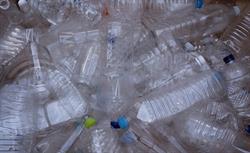 2022 saw a number of trends and developments related to the circular economy. These include sustainability-related activities in the climate technology industry, such as public and private efforts to promote recycling of lithium-ion batteries and photovoltaic panels. Meanwhile, corporations and organizations have reported failure to meet their sustainability-related pledges for the year 2025, including the Alliance to End Plastic Waste’s revelation that it only reached 0.4 percent of its goal of recycling 9 million tonnes of plastic three years into its five-year target.[Image Credit: © Jk Lee from Pixabay]
2022 saw a number of trends and developments related to the circular economy. These include sustainability-related activities in the climate technology industry, such as public and private efforts to promote recycling of lithium-ion batteries and photovoltaic panels. Meanwhile, corporations and organizations have reported failure to meet their sustainability-related pledges for the year 2025, including the Alliance to End Plastic Waste’s revelation that it only reached 0.4 percent of its goal of recycling 9 million tonnes of plastic three years into its five-year target.[Image Credit: © Jk Lee from Pixabay]
OTHER NEWS
Loop Sells Quebec Facility To Raise Capital, Plans To Focus On Asia And Europe
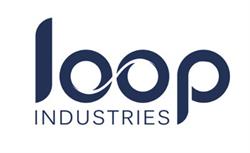 Loop Industries, Inc. has agreed to sell all its remaining property in Bécancour, Quebec, for CDN$18.5 million (US$13.9 million). The real estate deal is expected to close on February 24, 2023. Previously, the company has downgraded its operations at the Quebec production facility, which was built mainly to demonstrate the commercial feasibility of its depolymerization technology. Proceeds from the sale will leave the company with about US$33 million cash on hand, providing three years of liquidity. Loop plans to focus its commercialization strategy on planned projects with SK Geo Centric in Asia and Europe.[Image Credit: © Loop Industries, Inc.]
Loop Industries, Inc. has agreed to sell all its remaining property in Bécancour, Quebec, for CDN$18.5 million (US$13.9 million). The real estate deal is expected to close on February 24, 2023. Previously, the company has downgraded its operations at the Quebec production facility, which was built mainly to demonstrate the commercial feasibility of its depolymerization technology. Proceeds from the sale will leave the company with about US$33 million cash on hand, providing three years of liquidity. Loop plans to focus its commercialization strategy on planned projects with SK Geo Centric in Asia and Europe.[Image Credit: © Loop Industries, Inc.]
Multinationals, NGOs Highlight Limits Of Plastic Credit As Tool Against Plastic Pollution
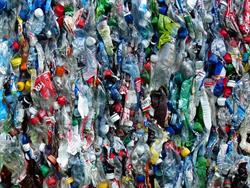 Multinational corporations, including Coca-Cola and Unilever, and nongovernmental organizations, such as A Plastic Planet and Greenpeace, have claimed that plastic credit is not an effective strategy for dealing with plastic pollution. These organizations made this claim during the Sea of Solutions 2022 virtual conference sponsored by the UN Environment Program. Plastic credit is a program designed to encourage corporations to “remove plastic from the environment” and recycle plastic waste into new products and packaging. Meanwhile, the WWF has also highlighted the potential for abuse of plastic credit as a tool for greenwashing.[Image Credit: © Hans from Pixabay]
Multinational corporations, including Coca-Cola and Unilever, and nongovernmental organizations, such as A Plastic Planet and Greenpeace, have claimed that plastic credit is not an effective strategy for dealing with plastic pollution. These organizations made this claim during the Sea of Solutions 2022 virtual conference sponsored by the UN Environment Program. Plastic credit is a program designed to encourage corporations to “remove plastic from the environment” and recycle plastic waste into new products and packaging. Meanwhile, the WWF has also highlighted the potential for abuse of plastic credit as a tool for greenwashing.[Image Credit: © Hans from Pixabay]
Copyright 2026 Business360, Inc.

